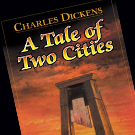Public Forums Battle Diversity
Dr. John Bartlit
New Mexico Citizens
for Clean Air & Water
Column of December 6, 2015, Los Alamos Monitor
 “It was the best of times, it was the worst of times, it was the age of wisdom, it was the age of foolishness, it was....”
“It was the best of times, it was the worst of times, it was the age of wisdom, it was the age of foolishness, it was....” These famously taut lines gain new currency from time to time. Now is such a time. Our land is besieged with crossfire of two words, “conservative” and “liberal.” With all said, they impute every vice borne in humans. The flaws are not confined to fiscal blunders.
All camps deploy the blunted bywords to attack everything from choices of foods and poster phrases to word meanings themselves. “Liar, liar” is the prevailing counter point.
Would such deeds make more sense viewed differently? A thought or two can be drawn from “ecology.” As a framework for people, consider an ecosystem. An ecosystem is made stronger by diversity, which works to stabilize and sustain the whole. Species eat different foods. Species find food and water in different ways. Species move differently and face different risks and ailments.
Environmental conditions at every level constantly change. To meet change, diversity increases the chance of life forms able to adapt and thrive. Ecosystems rely on competing plants and animals of varied kinds and instincts. A widespread interdependence results among species, unsought though it is.
We know about food chains, food supplies and the cycling of nutrients. We know the dynamics among populations. Look further. A second look finds symbiosis too, the ecologist's term for specific organisms that function together for mutual benefit. In certain cases, neither of them can survive without the other.
We know in detail why the health and success of the ecosystem depend heavily on the diversity of species, now by competing, now by cooperating.
Turn now to the public forum. The human species in the public forum compete in an ecosystem. They battle over word meanings, such as "tolerate" and "diversity." The people in the forum look far more like each other than do the varieties in nature. In the wild, animals cannot tell us apart.
To gain notice, the public sects who look so similar have opinions that are vastly more diverse than in any wild species. Diverse opinions, indeed, are the building blocks of our form of government. Diversity of opinion has been the source of our strengths, which include a natural stability and sustainability.
Yet, the diversity of opinion has grown to be so great that people no longer agree on facts as small as the meaning of diversity. Does “diversity” refer only to our physical forms? Or does diversity refer also to diverse views? Tolerance of our physical differences may be growing, while tolerance of differing views is clearly shriveling. Less tolerance for differing views brings less creativity, since ideas by their nature arise from inputs gathered from various angles.
With increasing frequency, leading universities report that groups of students demand their institutions not invite notable speakers to their campus if the demanders do not agree with what they expect to hear. Some universities meet the students’ demands to decide who may not speak.
Muzzling may feel like a conservative vice. Yet, the muzzling trend is a liberal one. Presidents of other schools reject today’s push to muzzle. Such leaders believe a spectrum of thoughtful speakers serves as a laboratory, in which students gain skill in hearing and judging the pros and cons of claims that compete in the real world.
We can debate to what extent the public forum is an ecosystem. Today’s model instead may be a party caucus. Antelope meet with antelope. Secretary birds meet with secretary birds. Warthogs have their caucus and orb-weaver spiders have theirs. Caucuses prefer ecosystems with less diversity.
Free speech in forums broadens the fare of ideas. Nature and history alike show that durable systems require diversity.